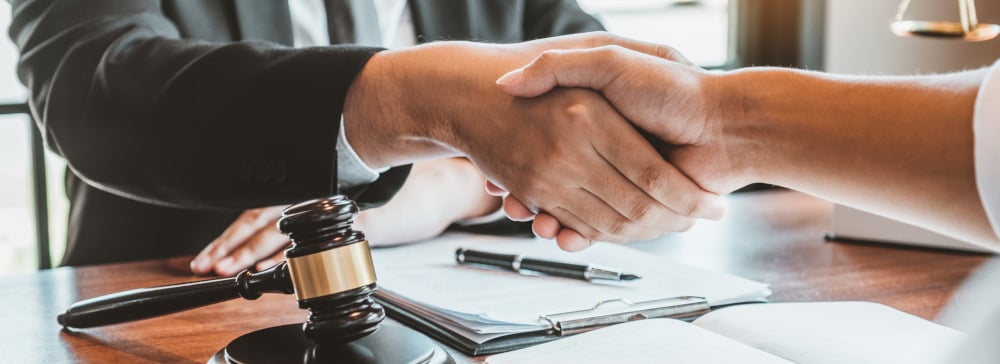Table of Contents
If you have been in a car accident in Florida, we can help. Our personal injury law firm specializes in auto accidents. Just look at some of our results:
We have offices in 10 locations around Florida, Boca Raton, Delray Beach, Stuart, Tampa, West Palm Beach, Boynton Beach, Fort Lauderdale, Palm Bay, St. Petersburg, Vero Beach. Click on the location closest to you for contact information. If outside normal business hours, leave us a message or use the contact forms on the website and we will get back to you in no time.
We are sorry you were involved in a car accident, but this is where things start to look up for you.
Give us a call at (561) 375-9500 and we can go over the details together.
You don’t have to worry about paying us. The discussion with us will be free and if there is a case, we only get paid when you get paid.




The skilled Florida car accident lawyers from Kogan & DiSalvo will help you fight to recover damages and hold a negligent driver accountable for their actions. By working with our Florida personal injury attorneys, you could significantly increase your chances of recovering just compensation and achieving a favorable resolution to your case. Contact our offices today to discuss your car accident claim.

Car accidents can be overwhelming and legally complex, especially when navigating Florida’s unique accident laws. Understanding these laws is crucial for protecting your rights and ensuring fair compensation after a crash. The following sections provide an overview of key Florida car accident laws that can affect how claims are handled and what compensation you may be entitled to receive.
The extent of a person’s injuries has no impact on how long a plaintiff has to demand compensation. In general, most personal injury claims in Florida must satisfy the Florida statute of limitations.
As of 2023, actions founded on negligence must be filed in court no more than two years from the date of the injury, with some exceptions. Because most motor vehicle accident cases allege negligence on the part of the defendant, this means that plaintiffs have two years after the collision to demand payments. This same time limit covers both cases that seek compensation through a lawsuit and those that demand payments from a settlement. A Florida attorney at Kogan & DiSalvo could work to ensure that a car wreck claim meets all legal deadlines.
As a no-fault insurance state, Florida requires drivers to seek compensation from their own insurance provider regardless of who caused the accident. This is done through personal injury protection (PIP) coverage, which pays for medical expenses and lost wages. However, if injuries are severe or meet specific legal thresholds, the injured party may file a lawsuit against the at-fault driver. Consulting with a legal expert can help determine whether pursuing a claim beyond insurance coverage is appropriate.
Florida mandates that drivers carry a minimum of $10,000 in Personal Injury Protection (PIP) and $10,000 in Property Damage Liability (PDL). PIP covers personal injuries and lost wages, while PDL covers property damage caused to others. Even in a no-fault system, drivers can still be sued if damages exceed these policy limits. It is crucial to notify your insurer immediately after an accident, as they will determine fault based on crash reports and related evidence.
In Florida, drivers involved in rear-end collisions are typically presumed negligent if they were behind the other vehicle. This presumption exists because drivers are expected to maintain a safe following distance to avoid accidents. However, the driver at the front could share liability if they acted recklessly, such as by making a sudden stop without cause. Evidence from police reports, dashcams, and witness statements can influence fault determinations.
Florida law requires drivers to report accidents that result in injury, death, or at least $500 in property damage. Even when accidents seem minor, filing a police report is recommended as it can serve as valuable evidence when seeking compensation. Timely accident reporting also helps avoid potential legal penalties and ensures that insurance claims are processed smoothly. Police involvement can clarify fault, making the claims process more straightforward.
Florida has recently updated its traffic laws to improve road safety and reduce car accidents. On January 1, 2024, the state expanded its “Move Over” law under House Bill (HB) 425. Previously, drivers were only required to move over for emergency vehicles like ambulances and police cars parked on the roadside. The updated law now includes all disabled vehicles with flashing hazard lights, requiring drivers to move over or slow down by 20 mph if changing lanes is unsafe.

In certain situations, those involved in an accident must call the police who will subsequently file a report. Conditions in which police response is required may include:
If the police respond to the scene, then they can document the necessary information and file a report. If the police do not visit the scene, but the damage caused by the accident exceeds $500, then the injured party must file a report on their own. They must do so with the appropriate police department holding jurisdiction over the location of the accident. Someone can file an accident report either online or in-person at the appropriate department.
If the accident was minor and did not result in any serious damage or harm, then it is not legally required for someone to report the incident. However, it is still recommended that any injured party files a report so that the details of the accident are well documented.
When filing a police report, there are a few things to take note of, such as the location and time of the accident, descriptions of involved vehicles, insurance information of all parties involved, and their contact information as well as any witnesses to the accident.
When contacting an insurance company following a car accident, it is good to know what to say, but it is also important to know what statements to avoid. Recognize that the objectives of insurance companies and those filing a claim do not always align. Injured parties should protect themselves by saying no more than they need to. Contacting one of our Florida car accident attorneys for assistance could help to ensure that someone does not say anything that could jeopardize their claim.
First, it is best to wait before contacting the insurance company to file a claim until all who need medical attention have received it, and any necessary reports have been filed. Calling immediately after the accident while possibly in shock or still emotional from the collision can make it hard to focus and you may relay information that could decrease the value of your case.
Secondly, do not admit fault or apologize while speaking to anyone at the scene of the accident, or to the insurance company. Fault will be determined through the report and between the insurance providers. When involved in an auto wreck it is hard to know how events actually occurred, so leave that work to be done by those investigating the claim. Similarly, those involved in a collision should not explain their injuries or state that they did not sustain any. Injuries and pain can surface days after an accident, so it is important to not make any declarations regarding health until absolutely sure there are no lasting injuries.
Avoid providing any uncertain statements or opinions. If an answer to a question is not known, do not respond to it or simply say “I don’t know.” It could be beneficial to seek the advice of Kogan & DiSalvo prior to answering questions from the insurance company if there is any doubt or confusion about the process and what they are asking.
Defendants in car wreck cases have an obligation to provide proper compensation for all injuries and damages that result from their negligence. A liable defendant must provide full compensation regardless of their lack of intent to cause injury.
It falls to car accident victims to demonstrate how a defendant’s negligence has affected their lives. The most obvious effect is the need for medical care. Physical injuries such as broken bones, separated joints, spinal cord damage, or traumatic brain injuries are all common consequences of car accidents. An at-fault defendant must provide payments to cover the costs of all necessary medical care tied to these injuries both immediately following an incident and in the future.
However, some car crashes also affect individuals in ways that extend beyond physical injuries. Most physical injuries come with significant pain and suffering. Whether this includes pain from the immediate impact or suffering endured while making a recovery, a defendant must provide compensation for this loss in quality of life. Many car accidents also may leave a person with severe emotional traumas that can result in nightmares, an inability to get back into a car, or PTSD. Plaintiffs must attempt to place a dollar value on these losses to demand proper compensation in a claim.
Finally, an accident may affect a person’s ability to earn a living. If an injury is severe enough to keep a person from working while making a recovery, a defendant should provide reimbursement for lost wages. More severe car accidents may result in a permanent loss of ability to earn an income. In these situations, a defendant could be liable to provide payments for lost earning capacity. A Florida car crash attorney could help injured individuals form demand packages that seek payment for all their losses.
Negligence is the standard legal grounds that most Florida auto accident attorneys base their civil cases upon. Negligence applies to these cases because all people who get behind the wheel enter into a social contract, requiring them to operate their vehicles in a way that does not place others at an unreasonable risk of harm.
This legal obligation exists because a single lapse in judgment or moment of distraction can lead to devastating collisions with other motorists or pedestrians.
When someone acts with disregard for their duty to drive safely and puts others at risk, they may be considered negligent. To prove liability in a car wreck case based on negligent behavior, plaintiffs must demonstrate certain arguments. The Florida car accident lawyers at Kogan & DiSalvo could help a claimant establish negligence in a car accident case.
All drivers assume a duty of care to drive responsibly and to follow all traffic laws while behind the wheel. This legal obligation extends to other drivers, passengers, bike riders, pedestrians, and others on the road. This duty is automatic when driving on public roads, and a motorist cannot delegate this obligation to anyone else.
In Florida, it falls to a plaintiff in the motor vehicle accident case to prove that a defendant failed in their duty of care. Defendants may breach this duty of care in various ways. Some examples include breaking a traffic law, driving while intoxicated, or texting while driving.
Every car accident case must make a connection between a breach of the duty of care and the plaintiff’s injuries. A surprising number of claims face challenges when an insurance company states that there is no proof of a connection between the collision and the claimed losses.
The final, critical portion of a claim is properly accounting for how the defendant’s negligence has affected the plaintiff’s life. Fully developed claims should include evidence of their losses, such as doctor or hospital bills, and proof of how the accident has affected their emotional state or ability to earn a living.
There are two main ways that plaintiffs could demonstrate a violation of duty of care on the part of the defendant. The first is to show that a defendant violated a traffic law at the time of the collision. Varying traffic laws control maximum speeds, require drivers to yield, and prohibit dangerous activities, such as texting while driving.
If a plaintiff can show that a defendant was in violation of these rules at the time of the accident and that a subsequent traffic court case ended with a conviction, this could constitute direct evidence of negligence. Other motor vehicle collision cases in Florida are not so clear-cut. There may be a genuine dispute as to which party was at-fault for a crash.
For instance, this may be the case when a police report is not clear as to what happened in the incident or does not assign a ticket to either party. In this situation, a car wreck lawyer in Florida could help find witnesses, traffic camera footage, or perform an accident reconstruction study to help demonstrate defendant fault.
Car accident cases often involve multiple parties, and sometimes even the plaintiff can be found liable for some of their injuries. A Florida car accident lawyer could explain Florida’s modified comparative negligence laws, and how they may impact a particular claimant’s case.
As of 2023, civil courts in Florida must use the modified comparative negligence standard when evaluating the actions of all parties involving in an accident case. This means that if the plaintiff is more than 49% at fault for their accident, they cannot recover damages. For example, if a jury decides that a plaintiff was 25 percent at-fault, that plaintiff can recover. By contrast, if a jury decides that a plaintiff was 50 percent or more at-fault, that plaintiff cannot recover.

The days and weeks following a car accident in Florida are a vital time in a person’s life. They may require medical attention, many nights in the hospital, and extensive rehabilitation. At the same time, these people may need to make substantial adjustments in their lives. Fortunately, the Florida car accident lawyers at Kogan & DiSalvo could help you.
If you have been in a car accident in Florida, you can meet with our car crash lawyers in one of the following locations:
From an initial investigation into the crash to gathering essential evidence and measuring your losses, our car accident attorney could help you build a powerful claim. We also could work to form demand packages that seek proper compensation for your losses from negligent motorists and their insurance companies. The opportunity to file a claim for damages may be running out. Contact our office today to get started and to schedule a free case consultation.
If you are injured and unable to come to us,
our attorney will come to you - there is no charge for us to do so.